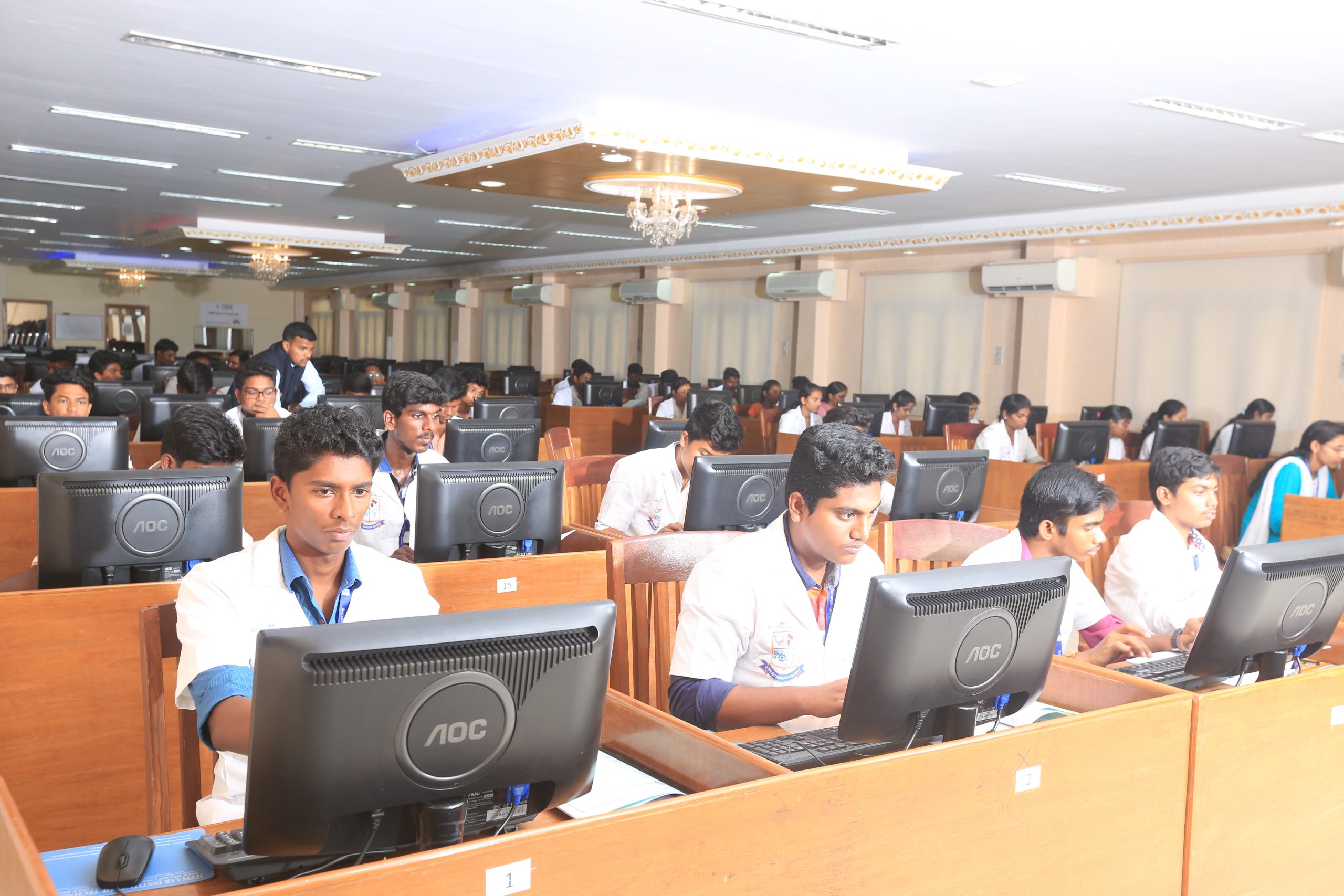
The Department of Computer Science & Business System (CSBS) was established in the year 2022 with the sanctioned intake of 30 student’s .Computer Science & Business System (CSBS) The course has been designed by global industry experts and academia in tune with Industry 4.0 requirements
Computer Science and Business Systems (CSBS) program aims to enhance the relevance of the computer Science program in India to meet the future demands of the IT industry whose landscape is rapidly changing in the era of Business 4.0.

1:To envision the technology and business trends in this domain and to create
2:Technically competent professionals for meeting out the needs globally and to impart competent industry relevant education, skillful research and innovative
3:computer science professionals together with managerial skills, human and social values
M1:To foster knowledge sharing through contemporary curriculum and creative teaching-learning
M2:To impart strong computer and business skills to shine and sustain in the agile IT industry
M3:To promote technocrats with rich expertise in innovation and research
M4:To instill moral values and ethical responsibilities by empowering graduates to be socially responsible
I:To apply computer science and management concepts to solve the real-world problems.
II:To develop professional skills in contemporary areas of computer science and business systems to obtain employability and pursue higher education.
III:To reconcile business demands with state-of-the-art technologies by providing innovative solutions and insightful decisions.
IV:To ensure ample growth with social and ethical responsibilities
V:Exhibit innovative thoughts and creative ideas for effective contribution towards economy building
Engineering Graduates will be able to:
Engineering knowledge:(K3)Apply the knowledge of mathematics, science,engineering fundamentals, and an engineering specialization to the solution of complex engineering problems.
Problem analysis:(K4)) Identify, formulate, review research literature, and analyze complex engineering problems reaching substantiated conclusions using first principles of mathematics, natural sciences, and engineering sciences.
Design/development of solutions:(K4)Design solutions for complex engineering problems and design system components or processes that meet the specified needs with appropriate consideration for the public health and safety, and the cultural, societal, and environmental considerations.
Conduct investigations of complex problems:(K5) Use research-based knowledge and research methods including design of experiments, analysis and interpretation of data, and synthesis of the information to provide valid conclusions.
Modern tool usage: (K3, K5, K6) Create, select, and apply appropriate techniques, resources, and modern engineering and IT tools including prediction and modelling to complex engineering activities with an understanding of the limitations.
The engineer and society:(A3)Apply reasoning informed by the contextual knowledge to assess societal, health, safety, legal and cultural issues and the consequent responsibilities relevant to the professional engineering practice.
Environment and sustainability:(A2) Understand the impact of the professional engineering solutions in societal and environmental contexts, and demonstrate the knowledge of, and need for sustainable development.
Ethics:(A3) Apply ethical principles and commit to professional ethics and responsibilities and norms of the engineering practice.
Individual and team work: (A3) Function effectively as an individual, and as a member or leader in diverse teams, and in multidisciplinary settings
Communication: (A3) Communicate effectively on complex engineering activities with the engineering community and with society at large, such as, being able to comprehend and write effective reports and design documentation, make effective presentations, and give and receive clear instructions.
Project management and finance: (A3) Demonstrate knowledge and understanding of the engineering and management principles and apply these to one’s own work, as a member and leader in a team, to manage projects and in multidisciplinary environments.
Life-long learning: (A2) Recognize the need for and have the preparation and ability to engage in independent and life-long learning in the broadest context of technological change
| S.No | Name | Designation | Specialization |
|---|---|---|---|
| 1 | Dr. VENKATRAMAN K | ASSOCIATE PROFESSOR | Data Analytics |
| 2 | Mr. MADHAVAN R | ASSISTANT PROFESSOR | Big Data Analytics |
| 3 | Ms. SHINY R | ASSISTANT PROFESSOR | Cloud Computing |
| S.NO. | ACADEMIC YEAR | NO.OF ONLINE COURSES | PROOF & DETAILS |
|---|---|---|---|
| 1 | 2023-2024 | Internet of Things” at Pantech e Learning Pvt Ltd,Chennai |
| S.NO | ACADEMIC YEAR | DOCUMENT |
|---|
| S.NO | ACADEMIC YEAR | DOCUMENT |
|---|---|---|
| 1 | 2023-2024 | View |
© 2025 Jeppiaar Institute Of Technology. All Right Reserved.
Designed & Developed by  Innov Touch Technologies Pvt Ltd.
Innov Touch Technologies Pvt Ltd.